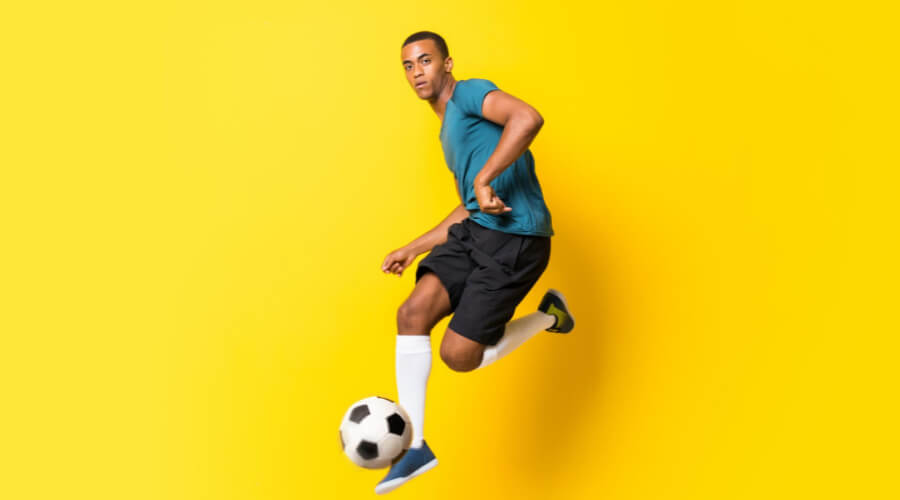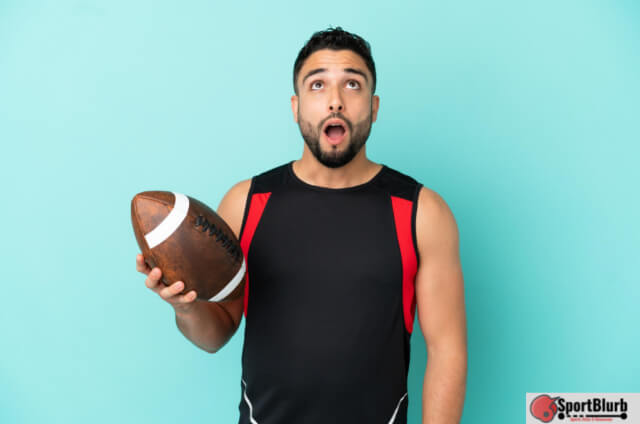Last Updated on October 14, 2023 by Alex PT
Age does matter when training for a sport. Children and adolescents have more flexible bodies and are better at learning new skills than adults. However, adults can still improve their athletic performance through training and dedication.
Does Age Matter When Training For A Sport?
- Significance of Age in Learning New Skills: Age indeed plays a critical role when training for any sport. One of the most significant aspects of age is its implication on learning new skills. Younger athletes tend to acquire and master new skills more rapidly than older individuals. This process is facilitated by the plasticity of their developing brains, which enhances the learning of physical skills and strategies.
- Physical Age vs. Biological Age: The broad term “age” could be subdivided into biological and physical age. While one isn’t entirely exclusive of the other, they sometimes differ significantly. For example, two individuals of the same physical age might have different biological ages, causing variations in physical and psychological development. This variance may influence sport performance and capacity to train.
- The Peak Age Theory: The Peak Age theory states that each sport has an optimal age at which athletes should peak. The age varies by sport, often younger for gymnastics and swimming, and older for sports like golf or marathon running. However, this theory does not mean an athlete cannot excel later or earlier; it merely suggests an average.
- Effects of Ageing on Physical Performance: Ageing is linked with gradual deterioration of many bodily functions, including muscular strength, flexibility, and cardiovascular capacity. These changes could affect the ability of an older athlete to train effectively. However, with appropriate training and conditioning programs tailored for older age, these challenges can be mitigated.
- Cognitive Aspects: Age can impact the psychological aspects of sports training. Older participants often present increased focus, resilience, and a more strategic mindset. These traits can enhance their performance and sometimes serve as an advantage over younger athletes with less mental fortitude.
- Risk of Injury: Age also plays a part in determining the risk of sports-related injuries. Young athletes are generally more resilient and recover faster from injuries. On the other hand, older athletes may have to contend with longer recovery times and an increased risk of age-related injuries.
How does aging affect athletic performance?
Aging can affect athletic performance in several ways:
- Muscle Mass and Strength: As people age, they typically experience a gradual decline in muscle mass and strength. This is due to factors such as reduced protein synthesis, hormonal changes, and less physical activity. Loss of muscle can affect power and explosiveness in sports.
- Cardiovascular Function: Aging can lead to a decrease in cardiovascular fitness. The heart may pump less efficiently, and lung function can decline, affecting endurance and aerobic capacity in sports.
- Flexibility and Range of Motion: Joints and tendons may become less flexible and more prone to injuries as people age. This can impact performance in sports that require a wide range of motion or agility.
- Recovery Time: Older athletes often require longer recovery times between intense training sessions or competitions due to reduced cell regeneration and tissue repair. This can affect training consistency and performance.
- Injury Risk: Aging increases the risk of injuries, especially if an athlete doesn’t adapt their training to account for reduced flexibility and muscle mass. Common injuries include muscle strains, ligament tears, and joint issues.
- Reaction Time and Coordination: Cognitive and neuromuscular functions may slow down with age, affecting reaction time and coordination. This can be particularly noticeable in sports that require quick decision-making and precise movements.
- Endurance: While endurance can decline with age, it’s possible to maintain and improve it through consistent training. Many older athletes continue to excel in endurance sports like long-distance running and cycling.
- Mental Toughness: Experience and mental toughness can compensate for physical declines in older athletes. They may use their knowledge and strategies to outperform younger competitors.
- Skill Development: Aging athletes often have the advantage of experience, which can lead to improved skill development and game intelligence, compensating for physical limitations.
- Adaptive Training: Older athletes may need to adapt their training methods, emphasizing mobility work, recovery, and injury prevention. Cross-training and strength training become crucial to counteract age-related declines.
Why Is Your Age Important To Your Sports Life?

There are a few reasons why your age is a very important thing to consider, let us walk you through it.
1. As Your Age Changes, Your Body’s Oxygen Usage Changes Too
This is something that you ought to have heard or seen somewhere online before. The way your body uses oxygen cannot be the same as the way it used to when you are above 40. The amount of oxygen your body is able to use is what determines your level of endurance. Scientists have given it a name, VO2max. The VO2max calculation can give you an exact rate in a numerical form of how much oxygen your body can use per your body weight.
Here is how oxygen works, first you breathe it in, it goes straight to your lungs, then it flows through your blood to the muscles in your body that are working at the time. The amount of oxygen that your body can supply to your lungs would then determine how much oxygen can be taken to these muscles. This should be clear enough. Now, how does this relate? Well, VO2 max is affected by how well your body can bring in oxygen, and that, in turn, is affected by your age. Now, what this means is that your VO2 max will surely be affected as you age. It reduces to a certain percentage as you get older.
Exercising your body is a good way to improve your VO2 max because as you get fit, the more endurance your body has.
VO2 max generally reduces by 10% for a healthy person after the age of 30. This is for most people though. Athletes and sportsmen who train very hard to keep fit could get their VO2 max reduced at a much lower percentage. For instance, the likes of Christiano Ronaldo the soccer legend, or Usain bolt who is a God on the tracks. These guys could get their VO2 max to reduce by half of the normal reduction.
Another factor that makes your VO2 max reduce as you age is your maximal heart rate. Everybody’s heart beats a different number of times each second. The maximal heart rate is the highest number of times your heart can beat in a given second. Normally this is something that would reduce as you age, the strongest athlete in the world still gets this reduction, it doesn’t matter what you do all day, this reduction will surely affect you.
Your body’s endurance reduces as your heartbeat reduces. This means that the Oxygen delivered into your body is reduced because, during this time, every little thing you do would warrant you to catch your breath. With oxygen reduction comes VO2max reduction.
2. Your Muscles Get Affected As You Age (They Don’t Work As They Used To)
Now we all know that your muscles can not strain as they used to for sports that involve you using a lot of strength and power. Exercises that involve weightlifting at a certain age might not be a good idea because your skeletal muscles like your bones, joints, and spines are weaker. A 60-year-old man carrying a weight he used to carry when he was 20 could end up not standing properly again because his joints could sever. This is common for only sports that involve that kind of exercise.
Now, people who are involved in a more endurance kind of sport, are still vibrant enough or at least more vibrant than a man who carries weight at the age of 40. Cyclists at the age of 40 could still cycle to that destination that they used to at their sweet spot age. Performance will always reduce as you age because of your muscles.
3. Age Messes Up Your Body Capabilities To Recover
Yes, this is about right. A man at his peak age could play any sport that involves a lot of contact because when they get injured or takes a hit, they can recover faster than an older man. Just like we mentioned before, your bones are weak as you age, imagine breaking a weak bone, it shatters and has little to no chance of ever getting repaired. A young man with strong bones would take a lot of hits and still get up fine after a few days in the hospital. It is just like an old man getting beat up or getting into an accident, a young man in the same condition would go back to his workplace before the old man can leave the hospital bed.
Final Words
Age affects almost everything you do in life, sports are no different because even sports officials consider your age before letting you play for a team.
References:
https://www.quora.com/Does-age-matter-when-training-for-a-sport
https://www.timessquareadcoalition.org/does-age-matter-when-training-for-a-sport/

Hi! I’m Alex PT. I hold a Bachelor’s degree in Sports Management from Indiana University and have over seven years of valuable experience working in a Sports Event Management Company. I founded SportBlurb with the passion for bringing you the latest, most insightful, and engaging content in the world of sports. So, whether you’re a die-hard fan or want to stay informed, I’ve got you covered!

